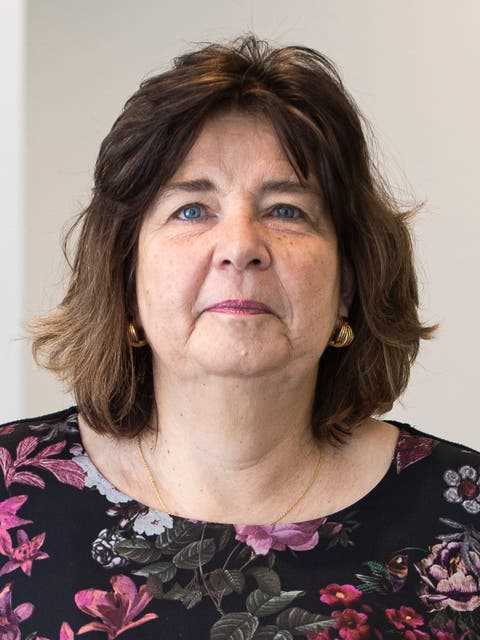If you want to visit someone in a retirement home or hospital in Zurich, you still have to show a Covid certificate. Gaby Bieri, medical director of the city of Zurich’s health centers for old age, finds the specification insufficient.
In old people’s facilities, too, more and more employees and residents are becoming infected with the corona virus.
Ms. Bieri, apparently the feared omicron storm in the city of Zurich’s health centers did not materialize – or are appearances deceptive?
When the number of daily new infections in Switzerland was 30,000 or more, many of our employees also tested positive. Now the numbers are at a slightly lower level.
Were there operational bottlenecks?
No, fortunately not. Shortening the isolation to five days and lifting the contact quarantine prevented staff shortages, or we were able to compensate for them.

Gaby Bieri, Director of the City of Zurich Health Centers for Old Age.
So is the all clear announced?
No. Because the basic rule is: If the number of infections in the population is high, they are also high in our health centers for old age. And because the infection rates are generally still high and are currently even increasing, the old people’s facilities are still very busy.
How many of the 3500 residents are currently infected with Corona?
We currently have around 110 residents who have tested positive. The employees are around 70.
Are there many difficult gradients?
Fortunately, we are seeing mild courses in the vast majority of those infected with Corona. Fatal outcomes are very rarely possible. Almost everyone affected is unvaccinated.
What security requirements apply?
The canton of Zurich requires a protection concept and the obligation for employees and visitors to have certificates. Residents who test positive must be quarantined and isolated. As in the hospital, we also implement quarantine measures. This will limit the spread of the virus within the community. In addition, we test all non-immune, i.e. non-boosted employees once a week with pooled saliva samples.
In schools, restaurants and cultural centers the obligation to obtain a certificate has been lifted. The only exception are the retirement homes. Isn’t that exaggerated – especially since many vaccinated people are also infected today?
The obligation to have a certificate for healthcare facilities only applies in the canton of Zurich, and that applies to visitors and employees. It expires at the end of the month. From my point of view, the usefulness of the certificate requirement in homes and hospitals is questionable: if someone was vaccinated eight months ago, the risk of infection or of passing on the omicron variant is as high as with a person who has never been vaccinated.
What do you suggest?
It would make more sense if visits were only possible with a booster and the certificate in health facilities was therefore only valid for four months. In this way, the obligation to obtain a certificate would more effectively contain the risk of the virus being carried into the institution. For this reason, we are a little stricter than stipulated in the regulation: not only those employees who do not have a certificate have to be tested repeatedly, but everyone who has not been vaccinated or not boosted.
Is there resistance to it?
Of course, the excitement is limited. Because the certificate requirement for visitors creates additional work that is of no use in terms of content. We’ve also learned from previous waves that it’s important to minimize the restrictions placed on visitors.
The obligation to wear masks for staff and visitors also continues to apply. Is she necessary?
The obligation to wear masks for employees and visitors is probably the most effective measure at the moment. However, I would like to be able to regulate this depending on the number of cases and the situation in the company. The residents don’t wear a mask – unless they are in quarantine or in isolation.
Are relatives and employees increasingly resisting the wearing of masks?
Actually rare. I think it is clear to most that the mask is the most effective measure at the moment. Many employees are happy that they no longer have to wear an FFP-2 mask.
How long will the protective measures remain in effect?
These are federal requirements. In view of the high number of cases, easing is only planned gradually. The currently applicable ordinance of the cantonal health department for facilities for the elderly and disabled will remain in force until the end of March.
Wouldn’t it be advisable to relax further now?
It would be desirable if the long-term institutions could decide for themselves who they would like to test in which situation. Not all employees have contact with the residents.
Are you confident about the future?
The number of cases, which is currently increasing again, and the progressive reduction in measures in society make me a little concerned. But perhaps we have simply become too cautious in the health centers for the elderly when dealing with Corona. Summer will surely bring improvement.
